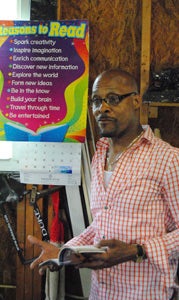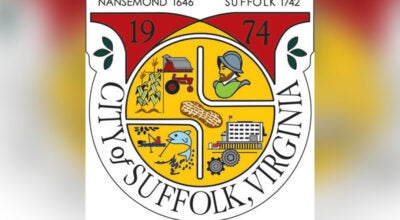Suffolk man holds reading workshop
Published 10:50 pm Tuesday, July 16, 2013
By William Scott
Correspondent
In today’s era of information, reading may be more important than ever. This is why reading specialist and teacher Lloyd Martin Askew has started a summer reading workshop for local African-American students.
The workshop is held every Tuesday and Thursday through summer at 416 Reno St. from 10:30 a.m. to noon. The program is completely free and open to students in grades K-8.
The session opens with Askew introducing a reading strategy to his students. Children then pick out a book appropriate for their reading level. After individual reading, the students have a literacy activity to practice the reading strategy. At the end of the session, the kids are grouped together, regardless of reading level, to demonstrate what they have learned. After the session, the children are given a snack that includes lemonade, fruit punch and cookies.
Askew teaches the children in an air-conditioned garage to keep the children cool in the summer heat. He is aided by his sister, Elane Eason, who helped set up the teaching environment.
He came up with the idea to enact this workshop while studying abroad in Italy and noticing the key differences between the literacy rates of Italy and America. A native of the area, Askew is a Suffolk High School alumnus, graduating in 1979.
“I just felt the need to give back to the community of Suffolk.” Askew said. “I have a passion for reading as it relates to children and education.”
Viewing the workshop not only as a way to improve the literacy rate of young students, but also to give back to the community, Askew said, “It’s something that I chose to do as a community service project, and to give back to my community because of my passion for reading.”
The children are grouped not according to age or grade, but according to their individual instruction needs. It’s what Askew’s program does to differentiate itself from the methods in the public school system.
“You can have five kids in the fourth grade, and they’ll all be at a different level and they all have different instructional needs,” Askew said of the problem with grouping kids according to grade.
Askew explained what he sees as a problem with teaching methods today. “They (students) are asked to be taught to a test to prepare kids to pass a test at the end of the year. They have to cover a certain amount of material in a certain amount of time. It’s like the kids are not getting it, because they are not being given enough quality instruction to help them master a certain concept in a certain time, because teachers have to cover too much information in a very short period of time.” He hopes to address this problem by working with each student individually.
“They read in their core subjects, they read in math, they read in social studies,” he said. “When kids are struggling readers, what it does is remind them that they are struggling readers because they can’t comprehend the science textbook or the social studies textbook.”







